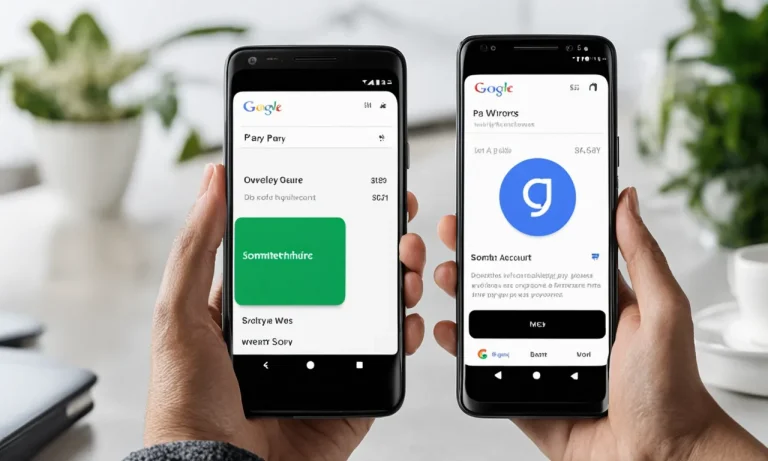Do You Get Holiday Pay Before 90 Days?
The holidays are approaching, and you just started a new job. Naturally, you may be wondering if you’ll get paid for the holidays that fall before you hit the 90-day mark at your new company.
If you’re short on time, here’s a quick answer to your question: In most cases, yes – you can expect to receive holiday pay even if you haven’t worked at a company for 90 days yet. But there are some important details you’ll want to understand about holiday pay for new employees.
In this comprehensive guide, we’ll explain everything you need to know about getting holiday pay within your first 90 days on the job. You’ll learn about standard holiday pay policies, factors that impact new employee holiday pay, how to find out your company’s specific policy, and what to do if you think you’ve been wrongly denied holiday pay.
Standard Holiday Pay Policies for New Employees
When starting a new job, many employees wonder if they will receive holiday pay before completing the standard probationary period.
The answer to this question can vary depending on the company’s policies and the type of employment. Let’s take a closer look at the standard holiday pay policies for new employees.
Most Companies Do Offer Holiday Pay Before 90 Days
Good news for new employees!
The majority of companies do offer holiday pay even before the completion of the 90-day probationary period. This means that you can enjoy the benefits of paid holidays right from the start of your employment.
It’s important to note that the specific number of holidays and the amount of pay may vary from one company to another. Some companies may offer a standard set of paid holidays, while others may have a more flexible approach, allowing employees to choose which holidays they want to take off.
Holiday Pay for Part-Time or Temporary Workers
Part-time or temporary employees often wonder if they will receive holiday pay, considering their non-full-time status. The good news is that many companies do provide holiday pay for part-time or temporary workers as well.
However, the amount of pay may be prorated based on the number of hours worked or the duration of the employment. It’s always a good idea to clarify the holiday pay policy with your employer to avoid any confusion.
Observing Probationary Periods
While it is common for companies to offer holiday pay before the completion of the probationary period, there are some exceptions. Certain companies may have policies in place that require new employees to complete their probationary period before becoming eligible for holiday pay.
This is often done to ensure that employees have demonstrated their commitment and suitability for the position. If you are unsure about your company’s policy, it’s best to consult your employer or refer to the employee handbook for clarification.
What Impacts Holiday Pay for New Employees
When it comes to holiday pay for new employees, several factors come into play. Understanding these factors can help both employers and employees navigate the regulations and policies surrounding holiday pay.
Here are some of the key factors that impact holiday pay for new employees:
State Laws on Holiday Pay
One of the primary factors that determine holiday pay for new employees is the state laws in which they are employed. Each state has its own regulations regarding holiday pay, including which holidays are considered paid holidays and how much employees should be compensated.
For example, some states require employers to pay a certain percentage of the employee’s regular rate of pay for holidays, while others may require a full day’s pay. It is important for both employers and employees to familiarize themselves with the specific laws in their state to ensure compliance.
Company Size and Policies
The size of a company can also impact holiday pay for new employees. Some companies, particularly smaller ones, may not have the resources or policies in place to offer holiday pay to new employees until they have completed a certain probationary period, such as 90 days.
Larger companies, on the other hand, may have more established policies that provide holiday pay to new employees from the start of their employment. It is important for new employees to inquire about the company’s holiday pay policies during the hiring process to avoid any surprises.
Union Contracts
For employees who are part of a union, their holiday pay may be determined by the terms outlined in their union contract. Union contracts often include specific provisions regarding holiday pay, including which holidays are recognized and how much employees should be compensated.
These provisions may vary depending on the industry and the specific union. Employees who are unsure about their holiday pay entitlements should consult their union representative or refer to their union contract for clarification.
Employee Classification
The classification of an employee can also impact their holiday pay. For example, full-time employees may be entitled to receive their regular rate of pay for holidays, while part-time or temporary employees may receive a different rate of pay or no holiday pay at all.
Additionally, exempt employees who are not eligible for overtime pay may have different holiday pay entitlements compared to non-exempt employees. It is important for new employees to understand how their classification may affect their holiday pay and to seek clarification from their employer if needed.
How to Find Out Your Company’s Holiday Pay Policy
Knowing your company’s holiday pay policy is important, especially if you’re wondering whether you’ll receive holiday pay before the 90-day mark. Here are a few ways to find out:
Check Your Employee Handbook
The first place to look for information about your company’s holiday pay policy is your employee handbook. The handbook should outline the company’s policies and benefits, including any provisions for holiday pay.
Look for sections specifically related to paid time off, holidays, or employee benefits. If you can’t find the information you’re looking for, consider reaching out to your HR department or supervisor for clarification.
Ask Your Manager or HR Department
If you’re unable to find the information you need in the employee handbook, don’t hesitate to reach out to your manager or HR department directly.
They should be able to provide you with the details of the company’s holiday pay policy. It’s always a good idea to ask for this information in writing, so you have a record of the conversation.
Look for Postings About Paid Holidays
Another way to find out about your company’s holiday pay policy is to keep an eye out for any postings or announcements related to paid holidays. Some companies may have a designated bulletin board or intranet where they share important updates and information.
Additionally, check your company’s internal communication channels, such as email newsletters or employee portals. These resources may contain information about upcoming paid holidays and any eligibility requirements.
Remember, every company has its own policies regarding holiday pay, so it’s important to familiarize yourself with your specific employer’s guidelines. By following these steps and seeking clarification when needed, you can ensure you understand your company’s holiday pay policy before the 90-day mark.
What to Do If You Don’t Get Holiday Pay
It can be frustrating if you’re not receiving holiday pay, especially if you’ve been employed for less than 90 days. However, there are steps you can take to address this issue. Here are some suggestions to help you navigate this situation:
1. Speak with Your Manager First
Before taking any further action, it’s important to have a conversation with your manager or supervisor. They may not be aware of the issue or there could be a misunderstanding.
Approach the conversation in a calm and professional manner, expressing your concerns and asking for clarification on the company’s holiday pay policy. It’s possible that there was simply an oversight and they can rectify the situation.
2. Check Federal and Local Laws
If speaking with your manager doesn’t resolve the issue, it’s important to familiarize yourself with the federal and local laws regarding holiday pay.
Laws can vary depending on your jurisdiction, so it’s essential to do your research. Visit official government websites or consult with employment law resources to understand your rights as an employee.
These resources can provide you with information on the minimum requirements for holiday pay and any exemptions or exceptions that may apply.
3. File a Wage Claim If Needed
If you believe that your employer is violating the law by not providing holiday pay, you may need to take further action by filing a wage claim. This is a formal complaint that you can submit to the appropriate government agency responsible for enforcing labor laws.
The process and requirements for filing a wage claim can vary, so it’s important to consult with the relevant agency or seek legal advice to ensure you follow the correct procedures. Keep in mind that filing a wage claim should be a last resort and it’s always best to try and resolve the issue internally before involving external entities.
Remember, it’s important to approach this situation with professionalism and to gather any evidence or documentation that supports your claim. Understanding your rights and taking the appropriate steps can help you address the issue of not receiving holiday pay effectively.
Conclusion
Getting holiday pay when you’re a new employee can sometimes be confusing.
Every company handles holiday pay differently—especially for workers who haven’t passed the typical 90-day probation period. While in most cases you can expect to get paid for holidays, make sure to clarify your employer’s specific policies.
That way, you can relax and enjoy your time off knowing you’ll be properly compensated. With the right information and a little communication, you can avoid any unpleasant surprises around the holidays during your first 90 days on the job.










